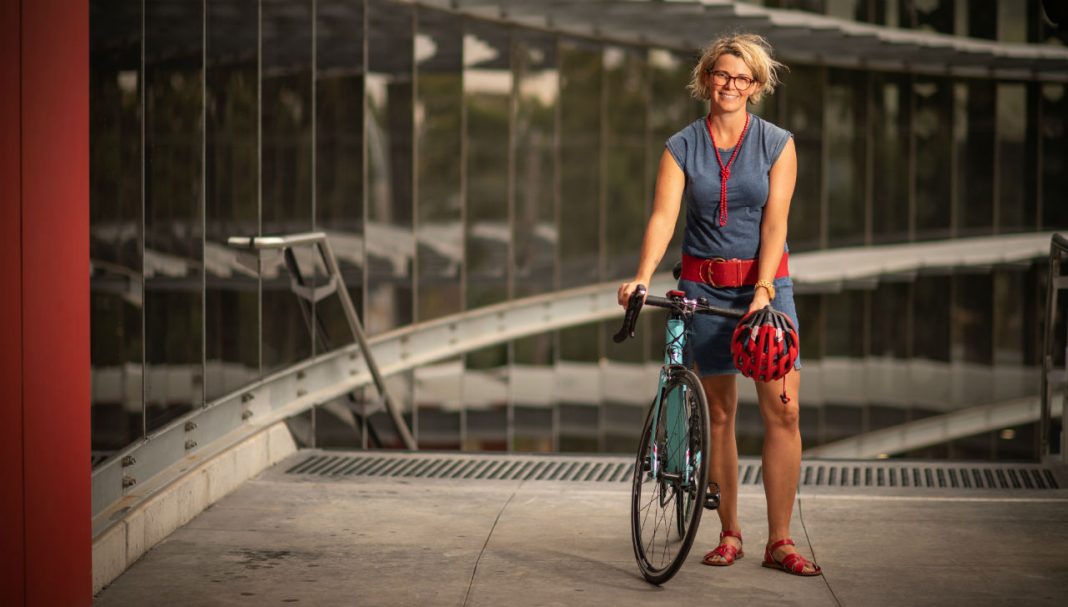Pene Wood is a dedicated pain, addiction and Quality Use of Medicines specialist who works across community pharmacy, policy and education. She has recently extended her expertise to incorporate advocacy, and has just taken part in the Pain Revolution Tour 2019.
How did you get your start in pharmacy?
When I finished high school I didn’t have a clue what I wanted to do. I started off studying speech pathology in Melbourne for about a year, relocating from the small town in Victoria where I grew up, Minyip. I was fairly homesick and decided that it wasn’t the career for me. I switched to a science degree, but I couldn’t see myself working in a lab. A core pharmacy course opened up in La Trobe University in Bendigo, which is closer to home. I was always interested in health, pharmacy and working with people, but I didn’t think my marks at school were good enough. Now I actually teach the pharmacy course at La Trobe that I initially took.
You work across policy, education and community pharmacy. Why all three?
It keeps life interesting! I started off working in community pharmacy but I felt like I needed to branch out, so that’s when I ended up heading back to La Trobe to teach. An opportunity came up at the Western Victoria Primary Health Network (PHN) for a role in one of the pharmacotherapy area-based networks, where I am now the Quality Use of Medicines lead. At the community pharmacy where I was working in Bendigo, there was a large client base of people who were participating in opioid replacement therapy. I developed quite an interest in this area. I still work regularly in community pharmacy to keep my hand in.
You’re working towards a PhD. What’s the focus of your doctorate?
Surprisingly enough, pharmaceutical opioid dependence. My team and I started out doing research into codeine, but then the changes came in to their distribution, so I shifted focus and broadened it to include all pharmaceutical opioids. We’ve just started a new study into pharmacist early intervention in opioid prescribing. The study looks at initial prescriptions of opioids, and whether having a pharmacist actually sit down with a patient affects their ongoing view of their pain management and their risk of dependence.
I noticed that when dispensing temazepam, if you spend some time with the patient and talk to them about the risks of becoming dependent, they showed concern. It seems to have an influence over their ongoing use. For patients who were already on temazepam and hadn’t had that information supplied at the start, it was hard to change their thinking and try to get them off the medicine. I thought if that approach worked for temazepam, it would work for opioids.
Tell us about your role with the PSA Aboriginal Community Controlled Health Service (ACCHS) trial.
The PSA received funding under the Sixth Community Pharmacy Agreement trial program, Integrating Pharmacists within Aboriginal Community Controlled Health Service to improve Chronic Disease Management Project. I will be the pharmacist at the Geelong trial until December, and I have taken extended leave from the PHN to be a part of that trial. Indigenous Australians are over-represented in so many of the chronic condition groups. And all of these chronic disease groups have a medicine management component, so that’s where pharmacists can deliver expert advice and ensure that medicines are being used appropriately. It’s necessary to spend some time building rapport in Indigenous communities. It’s a great opportunity, and I’m looking forward to being embedded and collaborating with other healthcare professionals.
Tell us about the Pain Revolution Tour.
It all began when Professor Lorimer Mosely and Associate Professor David Butler from the University of South Australia began the ‘Explain Pain’ movement, a global effort to transform pain practice. They then worked to develop Pain Revolution, with an educational bike tour in 2017 from Adelaide to Melbourne. By the time members are reading this, I’ll have participated in the ride through Tasmania. We’ll travel through regional and rural towns, stopping along the way to provide seminars on understanding pain, which in turn leads to better management.
There will be forums for consumers and healthcare professionals, along with a ‘Brain Bus’, which hosts activities so that participants can understand the neuroscience behind pain. All participants in the Tour have to raise $3,000 to go towards the Local Pain Educator program, which is a community-based health promotion initiative with a focus on local capacity building. As part of the program, local healthcare professionals are provided with education to gain a Professional Certificate in Pain Science as well as mentoring from industry leaders. We do the tour to raise awareness, but the training of health professionals also ensures a more longstanding impact on pain management.
You can find out more about Pain Revolution here: www.painrevolution.org



 Professor Margie Danchin[/caption]
Professor Margie Danchin[/caption]

 Dr Peter Tenni[/caption]
Dr Peter Tenni[/caption]
 How should we deprescribe gabapentinoids, according to the Maudsley Deprescribing Guidelines[/caption]
How should we deprescribe gabapentinoids, according to the Maudsley Deprescribing Guidelines[/caption]



 Pharmacists have always prescribed, but they have the potential to prescribe much more
Pharmacists have always prescribed, but they have the potential to prescribe much more






